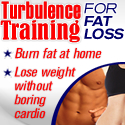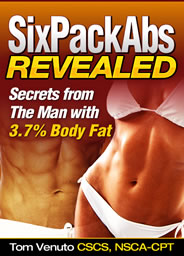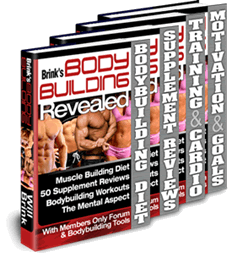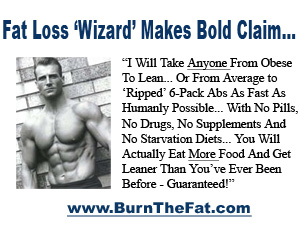Critical Protein Information That Can Make Or Break Your Muscle Gains!
Lies, Myths, Misconceptions, and Just
Plain Ignorance
If you are a bodybuilder or a bodybuilding enthusiast, you know the importance of consuming enough protein each day to build muscle. Bodybuilders are widely known for their large protein consumption and general protein obsession.
Protein does indeed have its place in the diet. It’s a very important and essential nutrient, necessary for overall health as well as building muscle. However, many lifters consume far too much of this macronutrient, under the mistaken theory of “more is better.” The lies continue about protein being unhealthy and being the cause of many diseases.
With all the mass confusion regarding protein, we’re going to burst through those compelling myths and debunk them right here and now.
Muscles Are Made Up of 100% Protein
Since consuming adequate protein drives muscle gains, most people assume that muscle is made up of 100% protein. While this may seem like a logical answer, it’s wrong. Your muscles are made up of roughly 70% water. The remaining portion of muscle is made up of glucose and amino acids.
With the above equation, can you see why it’s important to not only consume protein for muscle-building purposes, BUT ALSO carbohydrates? We discussed the benefits of carbohydrates in your muscle-building program in Lesson #2.
Carbohydrates are the fuel for your brain and working muscles. Many bodybuilders make the costly mistake of limiting or cutting their carbohydrates which can hinder potential muscle gains.
Carbohydrates are protein-sparing. They are absolutely essential when you are building muscle because they increase your glycogen stores which are necessary for protein synthesis and anabolism.
If you think you are going to gain muscle on a low-carb diet, you may as well be driving your car on empty, as neither are effective.
Benefits of carbohydrates:
• Spares protein
• Curbs cravings
• Provides energy
• Balances meals
• Provides muscle glycogen
• Aids in digestion of fats
Just not any carbohydrate will do though. The real skill is in your choice of carbohydrates. Quality overrides quantity every time.
This confuses many people. Yes, you absolutely need protein to build muscle mass, but you also need good complex carbohydrates and a lot of water. Remember, we discussed how drinking water benefits muscle gains in Lesson #2?
Water is the most abundant nutrient in your body, making up 70% of your bodyweight. It is also the most critical nutrient for muscle growth and fat loss. Most people don’t even realize water's amazing abilities and uses.
Benefits of water:
• Aids in digestion
• Assists in nutrient absorption
• Helps transport nutrients
• Mobilizes fat
• Lubricates joints
Water is the primary catalyst of chemical reactions and it controls the body temperature. It is the number one essential element that’s so overly discarded when it comes to weight training and building muscle. When you are only 10% dehydrated, your strength levels will be 50% less in the gym.
If you want to boost your training performance and muscle gains, tilt the bottle, the water bottle that is. Hydrate your muscles well so they have the ability to go 100% each training session.
The key to making all this work is to keep a steady stream of nutrients AND water flowing to your muscles throughout the day.
Protein Food vs. Protein Powders
While protein powders are absolutely effective for the training individual, they are not always better than real food. But, protein powders do have their place in a bodybuilding or fitness program.
Protein powders are absorbed quickly, making them the perfect pre and/or post-training meal. It’s easy to dress up a post-training protein shake to give it that insulin spike your body needs after a hard and intense training session. With the prefect ratio of carbohydrates and protein, your post-training shake can have a natural anabolic effect on muscle gains.
The downfall to protein powders is that they are a liquid meal and they don’t really allow the body to do anything, such as the work it takes to digest. This is why they are best effective before or after training.
Other useful times for consuming a protein shake is when you are in a situation that you MUST have a meal, but can’t realistically eat one, such as a business meeting, being stuck in an airport, driving, etc. This would be a good time to have a protein drink.
While protein powders can be effective at the proper times for muscle-gaining endeavors, they are not really ideal for fat loss. However, you can include them to a certain extent, but I would work on weaning them out if your primary goal is fat loss with the intent of getting cut.
Another downfall to protein powders is in the processing of them. Processing of protein extraction involves heat. The protein processed under high temperature (over 120 degrees) and/or high acid conditions becomes “denatured” and loses all its quality. The processing kills the enzyme functions in the protein and destroys the good bacteria; two vital components that make amino acids electrically charged.
A good low temperature, low acidic and non-chemical processing method for a quality protein is cross-flow micro-filtered (CFM). This type of protein would be ideal.
Consuming One Gram of Protein per Pound of Bodyweight
Eating one to two grams of protein per pound of bodyweight can be a good guesstimate of how much protein you need to build muscle, but in the end, it’s just a guess. Sure, this “one to two gram per pound of body weight” rule can be useful to an extent, but when you want to get precise and really make dramatic muscle gains or fat loss, this format will leave you high and dry.
To better get the right amount of protein that YOU need, you will be better off eating one to two grams of protein per pound of lean muscle weight, not body weight.
Your body weight includes the weight of your muscles, water, bones, organs, etc. Your lean

muscle weight includes just that, your muscle weight. The key to adding muscle mass with as little fat as possible is that you need to be feeding your metabolically active muscle tissue, and not your fat, muscle, and water weight.
To ensure you eat the proper amount of protein for your body, use the “one to two grams of protein per pound of lean muscle mass” rule. You will make far better muscle gains without adding excess fat weight.
Keep in mind that when you read in the muscle magazines about your favorite professional bodybuilder or fitness athlete putting away 300 grams of protein or more a day, that there are many variables that play into this. Many of the muscle magazines fabricate their articles like you wouldn’t imagine.
Often times those featured in magazines are taking anabolic supplements to enhance muscle gains. Those who use steroids need more calories from all the macronutrients, including protein.
When it comes to your protein needs, find out what YOUR body requires, not what Joe Blow suggest or the latest pro does.
Overeating Protein
Some people are under the misconstruing notion that you can eat all the protein you want and it will be use for muscle-building purposes. This is false. Anything can be stored as fat if you overeat it.
Protein needs are correlated to how active you are, how intense your weight training is, how much lean muscle tissue you have, as well as how much protein your body can actually assimilate in a certain amount of time. Your body uses protein based on the body’s needs and how well your body absorbs and digests protein.
Don’t get fooled into thinking that if some protein is good, more is better. Anything you overeat or that is unused will be stored as body fat.
If you want to get the most out of your muscle-building goals, put more focus on your training intensity and rest time between sets and your rest away from the gym. Yes, protein is very important, but overloading your body with protein is not the answer. Feed your body the protein it requires and what it can use for strength training.
Protein Is Difficult To Digest
There is a misconception that eating high protein puts stress on your digestive system. The human body is designed to eat meat, just as it is designed to eat vegetables, drink water, be active, receive sunlight, etc.
Sure, protein may be a little tougher to breakdown than carbohydrates, but is that any reason to neglect proper amounts needed for optimal muscle growth? If you consume adequate water intake, it will aid in digestion. Remember, your body is composed of approximately 70% water and your muscles are made up of about 70% water.
Are you beginning to see that it’s not just protein that can aid in muscle gains, but water too, can enhance your muscle building endeavors?
Excess Protein Causes Cancer and Osteoporosis
There are “claims” that excess protein causes some forms of cancer and osteoporosis. This is a lie; lies, lies, lies.
Cancer is caused by nutritional deficiencies and toxins in the body. Nutritional deficiencies and toxins rear their ugly head when your body’s pH becomes acidic. When you are acidic, you are a breeding ground for illnesses and viruses. Protein or excess protein does not cause cancer. This claim is just ridiculous.
“Diseases are but symptoms of nutritional deficiencies combined with retained toxins. These are caused by poor soil resulting in nutritionally deficient plants and fruit and other foodstuff...We must change our nutritional habits to consume at least 75% LIVING and UNPROCESSED foods - those that grow in the ground or fall from a tree. Everything else is hardly worth eating. If we do this we can stop using drugs and even supplements because our food has become our medicine.”
~ Dr. Juergen Buche, ND.
Excess protein does not cause osteoporosis either. Honestly, where are these people getting their “information?” Bones are made of natural proteins, and calcium hardens these proteins to make the bones solid.
Osteoporosis is a condition that can be linked to an acidic blood pH. This acidic pH can be brought on largely by a highly processed diet and colas.
The truth is that people have been eating a lot of protein for centuries. Cancer and osteoporosis are new diseases brought on primarily by the 20th Century, not by eating protein or excess protein; please.
Protein is Hard on the Liver and Kidneys
There are also those in the fitness industry who go on to suggest that excess protein is hard on your liver and kidneys. I am sure you have heard this claim a time or two, and even worried about it.
I am going to explain why some people may suggest this to be true. I will also explain that you can indeed eat a high-protein diet without it having any effect on your liver and kidneys whatsoever!
Digesting protein creates metabolic waste that must to be removed from the kidneys. When the body receives more protein than it can use the excess nitrogen is excreted as urea in the urine, and the rest of the protein molecule can be used for energy or stored as fat. Therefore, a lot of water is needed for proper digestion, and excretion when consuming large amounts of protein.
This is where the myth of high-protein diets and kidney damage are correlated. The excess nitrogen excretion can be hard on the kidneys if your water intake is below par. Without proper water intake, your liver and kidneys will be under stress. A lack of water and a lack of information is what can cause kidney damage. Therefore, drink at least a gallon a day when consuming high protein.
Conclusion
There are countless protein myths out there and they are growing by the day. If you are armed with the correct protein information, you will be able to distinguish fact from fallacy.
Finally, when it comes to getting enough protein, quality overrides quantity every time. It’s all about going back to the basics and feeding the body what it needs and when it can use at that moment.
You have received some vital muscle-building information these last few days. Use it to your advantage and make every meal and every training session a breeding ground for muscle growth.
 last seven days of prepping for your figure competition, commonly referred to as peak week, can be daunting and perplexing. A figure contest peak is the precise time when your body fat is at its lowest and you bring your muscles in full and dense. It's the pinnacle of your figure competition diet and training. A peak can only be kept for a very limited amount of time, so it is utterly CRUCIAL that your diet and training are EXACTLY timed your final 7 days before your figure contest.
last seven days of prepping for your figure competition, commonly referred to as peak week, can be daunting and perplexing. A figure contest peak is the precise time when your body fat is at its lowest and you bring your muscles in full and dense. It's the pinnacle of your figure competition diet and training. A peak can only be kept for a very limited amount of time, so it is utterly CRUCIAL that your diet and training are EXACTLY timed your final 7 days before your figure contest. last seven days of prepping for your figure competition, commonly referred to as peak week, can be daunting and perplexing. A figure contest peak is the precise time when your body fat is at its lowest and you bring your muscles in full and dense. It's the pinnacle of your figure competition diet and training. A peak can only be kept for a very limited amount of time, so it is utterly CRUCIAL that your diet and training are EXACTLY timed your final 7 days before your figure contest.
last seven days of prepping for your figure competition, commonly referred to as peak week, can be daunting and perplexing. A figure contest peak is the precise time when your body fat is at its lowest and you bring your muscles in full and dense. It's the pinnacle of your figure competition diet and training. A peak can only be kept for a very limited amount of time, so it is utterly CRUCIAL that your diet and training are EXACTLY timed your final 7 days before your figure contest.





